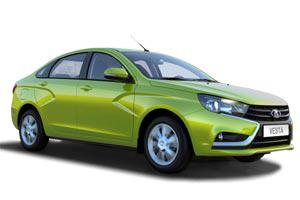Technical specifications
| Clear list | Hyundai i20 (2008-2012) | Ford EcoSport (2013-2018) |
| Totals | Hyundai i20 (2008-2012) 1.6 × | Ford EcoSport (2013-2018) 1.6 × |
| Mark | Hyundai | Ford |
| Model | i20 (2008-2012) 1.6 | EcoSport (2013-2018) 1.6 |
| Year | 2008-2012 | 2013-2018 |
| Number of doors/seats | 5/5 | 5/5 |
| Body type | Hatch | Hatch |
| Unladen Weight | 1052 | 1280 (1386) |
| Gross Weight Limit | - | 1700 (1715) |
| Top Speed, km/h | 190 | 170 |
| Acceleration 0-100 kph | 9.5 | 12.5 |
| Minimum turning radius, m | - | 5.3 |
| Cargo Volume, min/max, L | 295 | 310/1238 |
| Dimensions specifications, mm | Hyundai i20 (2008-2012) 1.6 × | Ford EcoSport (2013-2018) 1.6 × |
| Length | 3940 | 4235 |
| Width | 1710 | 1765 |
| Height | 1490 | 1665 |
| Wheelbase | 2525 | 2520 |
| Front/rear Track | 1505/1503 | 1519/1524 |
| Ground clearance | 150 | - |
| Engine specifications | Hyundai i20 (2008-2012) 1.6 × | Ford EcoSport (2013-2018) 1.6 × |
| Type | petrol Injection | petrol Injection |
| Displacement, cm3 | 1591 | 1596 |
| Compression ratio | 10.5 | 11 |
| Number and arrangement of cylinders | 4 cylinders, in-line | 4 cylinders, in-line |
| The diameter of the cylinder x stroke, mm | 77х85.4 | 79х81.4 |
| Number of valves | 16 | 16 |
| Power, hp/rpm | 126/6300 | 122/6350 |
| Max torque, Nm/RPM | 157/4200 | 152/5000 |
| Transmission specifications | Hyundai i20 (2008-2012) 1.6 × | Ford EcoSport (2013-2018) 1.6 × |
| Gearbox | 5-speed manual / 4-speed automatic | 5-speed manual / 6-speed automatic |
| Drive Type | Front wheel drive | Front wheel drive |
| Suspension specifications | Hyundai i20 (2008-2012) 1.6 × | Ford EcoSport (2013-2018) 1.6 × |
| Front | MacPherson strut | MacPherson strut |
| Rear | Dependent suspensions | Dependent suspensions |
| Tire Size | 175/70/14, 185/60/15, 195/60/16 | 195/65 R15 |
| Disk | 4x100 ET46 d54.1
| 4x108 ET37 d63.4
|
| Brakes specifications | Hyundai i20 (2008-2012) 1.6 × | Ford EcoSport (2013-2018) 1.6 × |
| Front | Ventilated discs | Ventilated discs |
| Rear | Discs | Drums |
| Fuel consumption specifications, L/100 km | Hyundai i20 (2008-2012) 1.6 × | Ford EcoSport (2013-2018) 1.6 × |
| City | 7.5 | 9.1 (9.2) |
| Highway | 5 | 5.2 (5.6) |
| Combined | 6 | 6.6 (6.9) |
| Fuel | 95 | 92 |
| Tank, L | 45 | 52 |
| Clear list | Hyundai i20 (2008-2012) | Ford EcoSport (2013-2018) |













